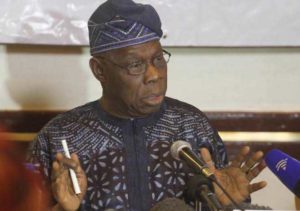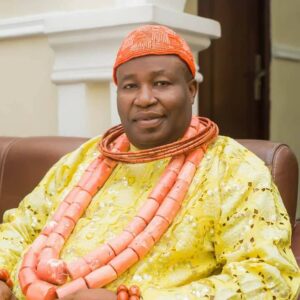ON MERGER OF MDAs IN STATES – A GOOD STEP IN CUTTING HIGH GOVERNANCE COST
By Zik Gbemre
It is generally known that the Nigerian democratic system is perhaps one of the most expensive democracy in the world. Beside the perennial systemic corruption, there is “duplication of supposed statutory functions” across several Government Ministries, Departments and Agencies (MDAs), Other Agencies of Government; this actually is one of the reasons why the Recurrent Expenditures of yearly budget dwarfs Capital Expenditures. As the problem is evident at the Federal level of Government, so it is at the State levels as well.
It is in this light that we support the suggestion made recently by Former President Olusegun Obasanjo, who, while lamenting the high cost of governance, challenged State Governors to merge some Ministries, Departments and Agencies (MDAs) as a way of cutting cost. Obasanjo who spoke in Abeokuta when the Chairman of the Joint Tax Board (JTB), Mr. Babatunde Fowler led chairmen of the 36 states’ boards of Internal Revenue on a courtesy call at his Hilltop residence wondered why, despite the economic crunch confronting the country, governors are still administering multiple MDAs, most of which are performing the same functions. Obasanjo insisted that the time had come for state governors to show, in practical terms how they use their citizens’ taxes, saying that that is the only way the people would be willing to pay their taxes.
The former President has practically hit the nail on the head on some of the suggestions we, and many well-meaning Nigerians, have been hammering on for ages. Without a doubt, if it were possible for us a people and a nation to sit down and calculate every naira and kobo that have been ‘recklessly’ spent by the Nigerian government at the various levels in their governance activities and supposed recurrent expenditure from 1960 to date, the results that will be revealed will not only be shocking, but it will also not commensurate with the deplorable status of the country which they are expected to effectively govern in the first place. In other words, rather than the high cost of governance, which is daily becoming a national concern, to reflect as improved living conditions of the Nigerian populace, it is only reflected on those ‘privileged’ to be in and around the circles of government, thereby leaving the majority of the population i n perpetual want and need. And the situation is far worse at the State levels of government.
Perhaps, it was against this prevailing ‘unhealthy’ circumstance that in 2012, former President Goodluck Jonathan inaugurated the Steve Oronsanye Committee with the aim of “Restructuring and Rationalization of the Federal Government Agencies, Parastatals and Commissions”. Though, most of its laudable recomendations are yet to see the light of day, however the committee noted that: “a fundamental breach of acceptable practice of good public sector governance to create a new agency or institution as a response to the seeming failure or poor performance of an existing agency in order to suit political or individual interests”, as well as “misadventure in the public sector at a great cost to government”, is the ill-advised reason that has made us to create so many institutions of government that practically do the same thing. The committee also regretted that “the long-standin g challenges that beset the Nigerian public sector, including the parastatals, have created a “single story” of inefficiency, corruption, poor work environment, low morale, ineffectiveness, deceit and low productivity, thereby establishing a perception of a dysfunctional and unproductive public sector. The weaknesses in the “single story” have sometimes placed the Sector in a situation where it is unable to perform its legitimate functions creditably.
If we are to look at the above issue objectively, we would realize that even the Executive arm of Government, both at the Presidency and at the State Governments, seriously needs to address the duplication of some of its portfolios and their functions/duties. It is sad to see the State Executive Governments make some needless appointments of officials around their offices that are pure duplication of functions or out rightly unnecessary. For instance, how can an Executive Government have a Special Adviser on one thing, and another Senior Special Adviser on the same thing? We also have Special Assistants and Senior Special Assistants of one thing or the other; all practically doing the same thing or just there to please personal interests. Some call it “jobs for the boys”, that is, those who have placed the Executive Government concerned deserve to have their interests present in the administration they helped to create. But this is often done to the de triment of the overall good of the people in such States. Delta State, is a very good example where this anomaly has been made a norm. The truth is that if the Government must address this issue of ‘duplication of function’ in its circles, then it must start at its door step.
Aside the obvious Executive and legislative functionaries, the MDAs are basically where the loopholes regarding government expenditures are evident. In the past, most of the Ministries and Agencies at the State level that exist today on their own were statutorily taken care of by one or two Ministries. But over the years, these Ministries and Agencies of Government that sprang up have become avenues through which public funds are wasted. The truth is that, a lot of these Ministries in the country today are functioning on the platform of ‘duplication of functions/duties.’ Some of the MDAs are nothing but unnecessary sprouts that should be uprooted or merged to function under one or two Ministries or even completely scrapped. Perhaps, it is expedient for State Governments and the entire nation to take a critical look at developed societies and see how they operate, and possibly emulate the laudable practices that would suit our kind of democracy. The size of the Nigerian government at all levels drastically needs to be reduced if we are serious in tackling the challenges that are adversely impacting the economy. We cannot develop our States or the entire nation with the way we are going. No State or country has achieved considerable development when such ‘public funds wastage’ is encouraged.
Amid the huge budgets yearly set aside to address recurrent expenditure, what the average citizen sees is only the worsening of his environment, the continuing decay of existing structures, and his rising poverty level. The bottom line is that Nigeria’s public expenditure, vis-a-vis the country’s state of underdevelopment is neither justifiable, nor favourably comparable to similar expenditure in other countries. The above analysis explains why every dick and harry are clamoring to do whatever that is necessary to find their way into the circles of State governments – where one’s economic status can change overnight by doing practically little or nothing in the name of government work.
On the issue of tax, which Obasanjo insisted that the time had come for State Governors to show, in practical terms how they use their citizens’ taxes, saying that that is the only way the people would be willing to pay their taxes, we believe there is nothing further from the truth. Fowler, also agreed that tax payers will be willing to meet their tax obligations if they can see that taxes paid are being well utilized. He also lamented that 33 States in the federation still depend on federal allocation to fund their budget, saying the goal of the meeting was also to bring other States to a level where they would be able to generate at least 50 per cent of their budgets internally.
For us, while it is imperative for State Governments across the nation to see and use taxation as a great source of revenue for development, what is more important, especially in the Nigerian situation, is that both the State Governments and their internal Revenue Institutions, should also be talking about accountability. That is, accounting for the use of the tax revenue for the purpose it is meant for. The truth is, nobody will be happy paying taxes to the Government that are never used at the end of the day, for the benefit of the people in terms of provision of basic utilities and infrastructure like good roads, street lights, good transport system, steady power supply, easy access to good health care, standard education, affordable housing, etc. The Nigerian State Governments, including the various State Internal Revenue Services, should not expect Nigerians to willingly pay their taxes when the State Government has not proven to be faithful and accounta ble in the utilization of public funds that comes into its coffers.
It is a known fact that most of the Great nations we know today have developed themselves through taxation. The Nigerian State Governments have over the years, lost quite a number of opportunities to benefit from a properly functioning tax system. Unarguably, ever since crude oil was discovered in Nigeria on January 1956, the country has changed completely. Nigeria has strategically abandoned other sources of income that could generate trillions of naira annually. State Governments have even become too ‘lazy’ to think outside the box to generate revenue that would be used to develop their States. They prefer to wait for the Federal Government allocations, which they also do not properly utilize to the benefit of its people. But rather, waste such public funds to maintain their ‘gluttonous appetite’ and selected interests in the name of State Government Recurrent Expenditure.
Aside the anomaly of having MDAs at the level whose functions are overlapping, these numbers of government functionaries also have ‘appendages’ that are attached to them as Special Advisers, Senior Special Assistants, Special Assistants on Social Advocacy, Special Assistants, Personnel aides, Chief of Staff, principal Protocol officers, protocol officers, Personal Assistants (PA), and other fancy names that are too numerous to mention. The situation is worse at the State and Local Government levels. That is why whenever some government personnel is on his/her so called official duties, the fleet of cars that usually accompany the official is enough evidence that explains how the country’s treasury is daily milked to maintain such highly-profiled entourage; entourages that have even made our roads no longer safe or a public utility for everybody, particularly anytime they pass. And this applies to all government fun ctionaries, starting from the State Governors, Deputy Governors and their Commissioners including Council Chairmen and their Councilors.
What we also find more disturbing is the fact the exotic number of cars often used by State Governors and their Deputies for instance, in their entourage, are usually ‘empty’ with no occupants. Some State Governors and their Deputies even have their own individual Press Crew as part of their entourage. And wherever they go, even unofficial visits, thier large entourage follow. Most times, nothing less than ten to fifteen vehicles usually goes ahead of the said government official to make/create the way for the government official to come follow suit much later; sometimes up two to three hours difference ahead. We cannot help but ask of what basis is all of this? What sort of value and message are our public leaders portraying to our children and the international community? We understand the need for Security Protocols to be maintained and put in place for every public official on their official duty. But in the situation where this privilege is o bviously grossly abused and now a means through which state funds are wasted, then it calls for concern and needs to be addressed. There are however, very few Federal and State Government officials that are not in the habit of wasting public funds through these windows stated above. Sometimes we wonder if our political leaders that travel overseas to developed countries do not see how ‘simple’ and ‘public friendly’ government officials are supposed to be.
To hint us how serious this problem is, we were stunned to note that on Federal Public Servants alone, the Federal Government spends N200 billion yearly on emoluments. As of December 31, 2010, the three tiers of government in Nigeria would have spent N15.6 trillion or more on public servants, since May 1999. This accounts for about 29.94 per cent of the N52.103 trillion spent by the three tiers of government within the period or 49.90 percent of the estimated N31.26 trillion recurrent budget. And according to experts, the government spends an average of 40 percent of annual budget on capital projects. In essence, about N20.84 trillion had been allocated to capital expenditures within the period.
Then on the State and Local Government levels, it was revealed that since 1999, the local councils have received N7.5 trillion as statutory allocations. In the eight (8) years up to 2007, the third tier of government received N3.3 trillion. In 2008, the councils got N1.05 trillion as statutory allocations and about N1.2 trillion in 2009. According to the Ministry of Finance, the Federal Government expects N6.04 trillion in revenue in 2010 and the local councils are expected to get about N1.5 trillion as statutory allocations. The N52.103 trillion excludes local councils’ Internally Generated Revenues (IGR).
The above statistics explains the seriousness of this issue and the need for it to be addressed as suggested. To put more bluntly as Obasanjo suggested, State Governors should “reduce waste by reducing the number of MDAs. Government can do a lot by looking at their own establishments and where they have to bring together institutions that do not need to continue to exist separately, they must merge them. They must also show that the money they generate and the tax that the people pay are well utilized. I think these are some of the things we have to do to get us out of the tight situation that we are all in…”
Zik Gbemre,JP.
National Coordinator
Niger Delta Peace Coalition (NDPC)




